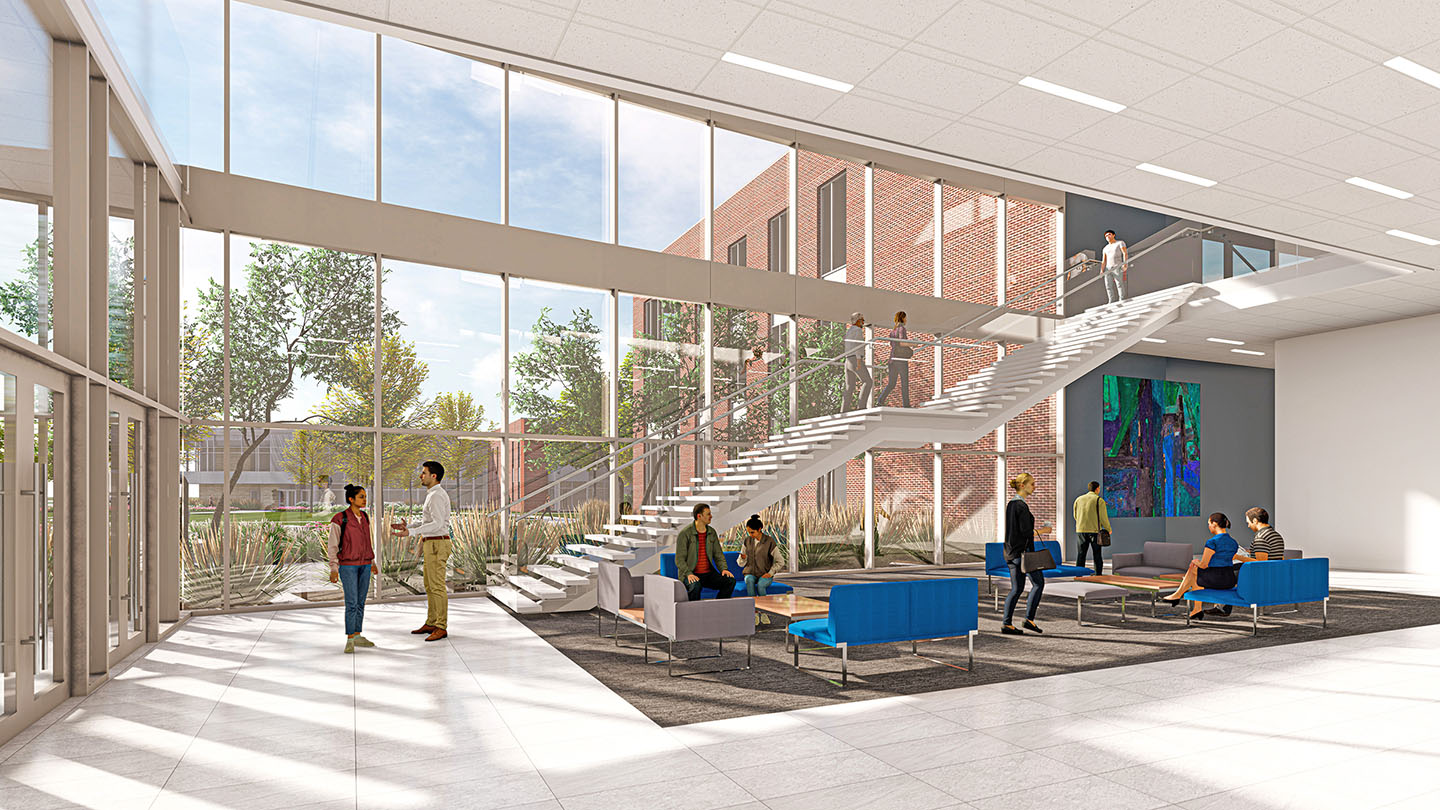
KEARNEY – A proposal presented today by University of Nebraska President Ted Carter would strengthen the successful partnership between the University of Nebraska at Kearney and University of Nebraska Medical Center while further addressing the need for more health care workers in the state’s rural areas.
In testimony before the Legislature’s Appropriations Committee, Carter outlined a series of university proposals focused on workforce development, health care, research and innovation for state leaders to consider for American Rescue Plan funding. The federal COVID-19 relief dollars present a unique opportunity to invest in initiatives that will not only help Nebraska recover from the pandemic, but grow the state’s economic competitiveness and quality of life for generations to come, he said.
Among the proposed projects is a Rural Health Complex that would significantly expand the capacity for students in a variety of health fields to study and train in Kearney, with an ultimate goal of growing the talent pipeline for rural communities.

The project has an estimated cost of $85 million, with $25 million coming from private funds. It could be completed as early as 2025.
Quality, accessible health care is essential to the survival of rural communities, but Nebraska faces urgent workforce shortages. All counties except Douglas and Lancaster are designated as shortage areas for at least one type of primary care, according to a 2020 report from UNMC, and there is high demand for more primary care physicians, nurses, dentists, mental health practitioners and allied health professionals.
“This is a tremendous opportunity for us to move forward and make a huge difference in rural Nebraska,” said UNK Chancellor Doug Kristensen. “It is an initiative, a world-class medical center and national model, that would move the needle in many areas and change health care for years to come.”
The Rural Health Complex would build upon an existing partnership between UNK and UNMC that’s shown great success. The two institutions opened a $19 million Health Science Education Complex on UNK’s west campus in 2015, and that facility quickly filled to capacity. UNMC offers more than a dozen professional programs there, with over 85% of graduates remaining in Nebraska to practice and the vast majority working in rural communities.
“Our partnership with UNMC has proven that students will stay and work in rural Nebraska when they have access to high-quality education and training there,” Kristensen said.

To be located directly north of the Health Science Education Complex, the new Rural Health Complex would allow UNMC to expand its existing nursing programs and bring new options to the UNK campus, including occupational therapy, medical nutrition, genetic counseling and respiratory care – all high-need areas in rural Nebraska.
For the first time, the UNMC College of Medicine would educate physicians in rural Nebraska, and a Master of Health Administration would be added to complement UNK’s undergraduate program. Discussion is also underway for the UNMC College of Pharmacy to offer a joint degree program with UNK, which will enhance its successful undergraduate curriculum to ensure future UNMC students have the highest quality of preparation for rural health service.

Both UNK and UNMC are developing additional strategies to work with rural Nebraska communities to recruit and retain future health care workers. The Rural Health Complex would also offer professional development, training and continuing education opportunities for existing health care workers and support research that improves the lives of Nebraskans.
Carter emphasized that the university’s proposals represent existing strengths and priorities, and that NU leaders intend to pursue every opportunity to bring each of them to fruition because of their importance to the future of the state.
“The chancellors and I have spent months talking about what we as Nebraska’s public university system could bring forward that would have the most meaningful and long-lasting impact for the people of our state,” Carter said. “The chancellors delivered with big ideas that will still be growing Nebraska five, 10 and 20 years from now.
“These are once-in-a-lifetime opportunities to change the trajectory for Nebraska – solutions our university is uniquely positioned to deliver.”
